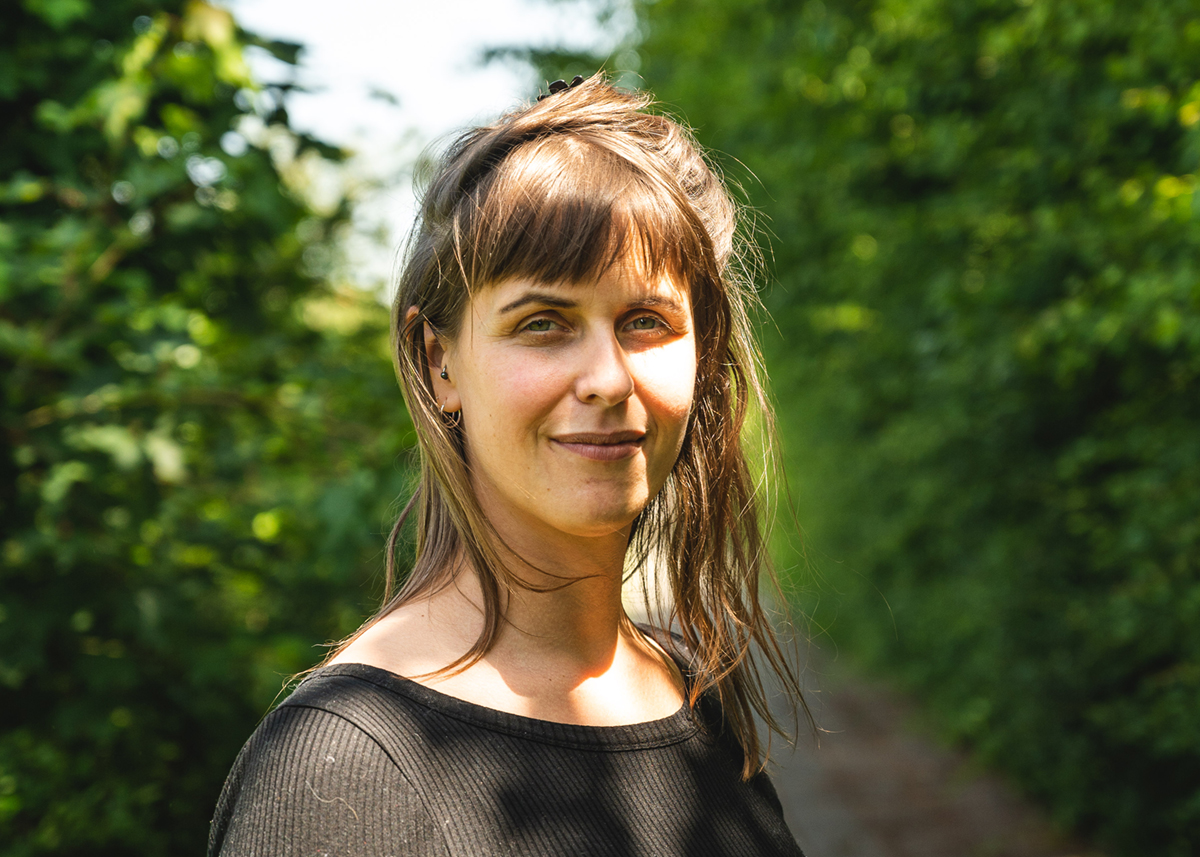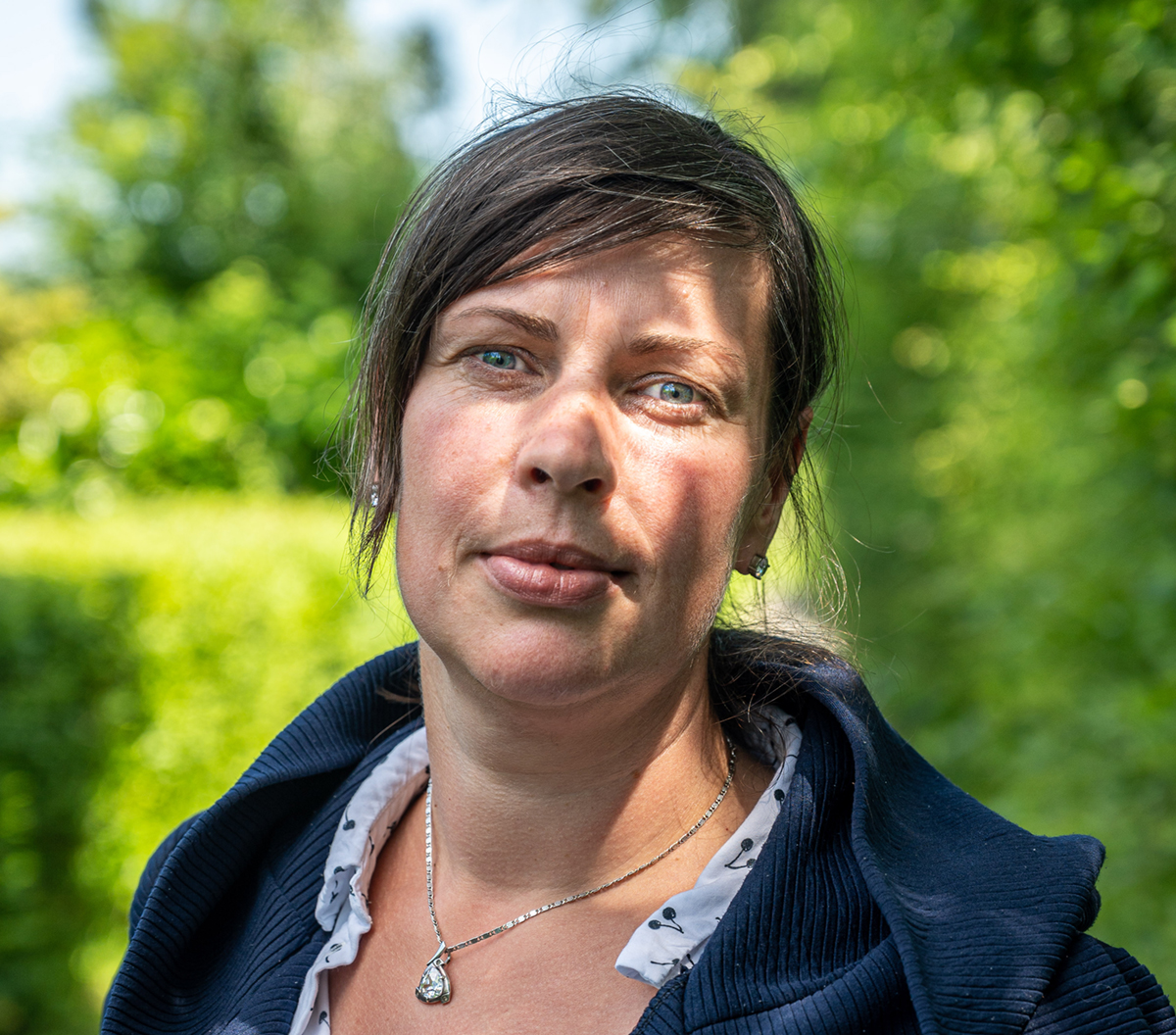GIULNARA DAVYDKINA
Giulnara was born and raised in Lithuania. In the Netherlands she studied Slavic languages at Leiden University. In addition to her work for the Helpline, she works as a facilities officer within ministries. Furthermore, she loves sport, reading and walking in the woods or dunes and swimming in the sea. Preferably with her husband and son.
CARRY VAN WERSCH
Carry has been working for the Red Cross for one year as a project leader for digital assistance at the Migration & RFL department. Before joining the Red Cross, she worked in the field of migration, for example at a social research agency and as a programme maker at the Humanity House museum. Carry lives in Amsterdam. In her free time, she likes to go indoor climbing or rock climbing.
Reading time 9 minutes
GIULNARA DAVYDKINA AND CARRY VAN WERSCH
"The need to do something comes naturally".
Giulnara Davydkina (41) and Carry van Wersch (35) knew each other by name, but had never spoken to each other live before. As a project manager for digital aid, Carry was directly involved in setting up the Ukraine Helpline and still steps in regularly to help. Giulnara is one of the volunteers who answers the questions of Ukrainians who are trying to find their way in the Netherlands.
Carry: "Giulnara, how did you get involved with the Helpline?"
"Like many people, I wanted to do something for the Ukrainians coming to the Netherlands. Leiden University, where I studied Slavic languages, organised the reception of the people who arrived in Rotterdam on the first buses. I volunteered for this, but in practice it was difficult to combine it with my husband's work and the care for our four-year-old son. The WhatsApp Helpline is a great way to help people directly. I can do it from home and I can use my knowledge of Slavic languages."
Giulnara: "I have some idea of what you do. But can you tell me exactly what your work entails?
Carry: "As project leader for Digital Help, I use digital resources to help people in need. Normally I do that for the Undocumented People Helpdesk. When the Ukraine crisis started, I started helping at the Ukraine Helpline. Especially in the beginning it was very hectic. For my job it means that I have to recruit and train volunteers and make sure that the information is always up to date. And I am the contact person for these volunteers. Now we have just hired two coordinators who also speak Ukrainian and Russian and act as contact persons for the volunteers. That takes a lot of work off my hands.
Carry: "And you, what are you seeing frequently in practice just now?"
Giulnara: "Many questions still come in every day. Some people come back again and again and tell their whole story. Others have mainly practical questions that they want answered quickly. And that is what we can offer. We work with forms with frequently asked questions: How do I find shelter? Can I see a doctor? How does public transport work? We can refer most people onwards directly or help them. You also see more and more platforms appearing for Ukrainians in the Netherlands. For example, you can post a message: 'I need an iron and I live in city x. Who can help me? That works really well."
Giulnara: "I've only been doing this job for a short time, but you haven't been with the Red Cross for long either, have you, Carry?"
Carry: "That's right, I have been doing this work for a year now. But I am no stranger to the Red Cross. Before this, I worked for a number of years at the Humanity House, which was initiated by the Red Cross. There, I organised debates about the situation of refugees and undocumented migrants, for example. In my current role as project manager, I can help people much more directly. I like that. I have a strong sense of justice. I want to make things better for people who are having a hard time. At the Helpline, but also at the Helpdesk for undocumented migrants, where I mainly work, you hear people's stories and what they are up against. We try to help them solve their problems. That’s really where my passion lies."

Carry van Wersch
Carry:
“I want to make things better for people who having a hard time”
“I want to make things better for people who having a hard time”
Carry: "And how do you find your passion in this work?"
Giulnara: "I am from Lithuania, my father is Russian, I was brought up to be bilingual as a child. I have, like many people from our region, not only Russian but also Ukrainian family ties. I have relatives in Odessa. They have fled, are safe in Germany. But it gives an extra urgency to do something. Just watching the news and doing nothing is not an option."

Giulnara Davydkina
Giulnara:
“Just watching the news and doing nothing is not an option”
“Just watching the news and doing nothing is not an option”
Carry: "To us, Ukrainian and Russian look very similar. Is that right?"
Giulnara: "It is a bit like Dutch and German. If you speak Russian, you can make yourself understood by Ukrainians. Certainly the generation of forty years and older has had Russian as a second language at school. You do see that many people prefer not to speak Russian on principle, it is a very sensitive issue at the moment. There are more and more initiatives to offer Ukrainian as a language, for example at Leiden University. Students of Russian now get Ukrainian as a minor subject."
Giulnara: "It is very rewarding work that we do, but sometimes it is also difficult when you hear intensely moving stories. I am quite emotional and I notice that it often affects me. How do you deal with that?
Carry: "Generally, I manage to keep my distance, but some stories do stick. Like a woman who is looking for nappies for her incontinent mother and has no money, where can she go? I would love to go to the shop and buy them for her. But that is not possible. There are so many stories, often very moving. You have to watch your boundaries.
Carry: "Suppose you had to convince other people to become volunteers too. How would you go about that?"
Giulnara: "The people I know who speak Russian or Ukrainian do not need to be motivated. The need to do something comes naturally. You get a lot of satisfaction out of it, you do something good for people. Who wouldn't want that?